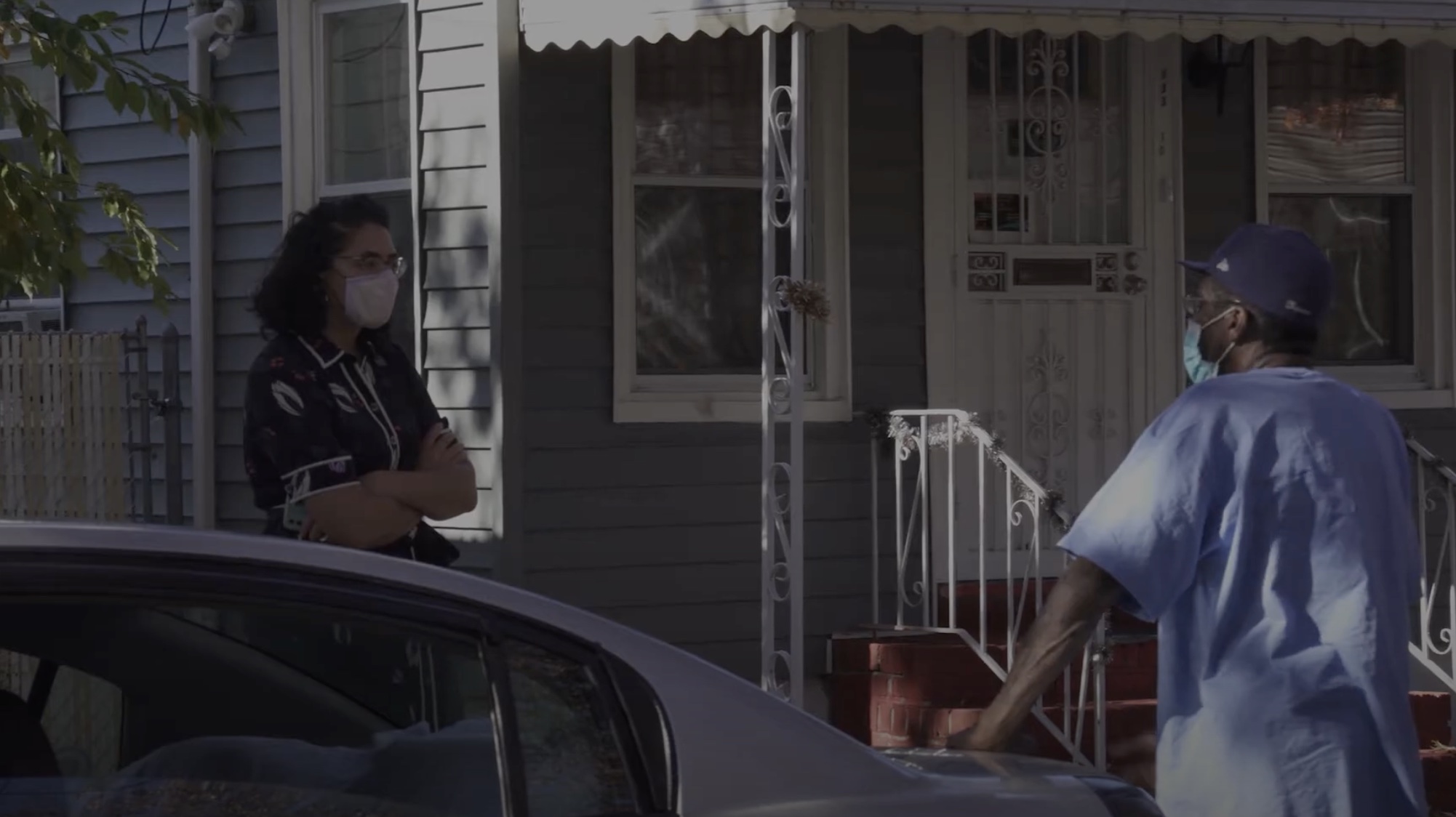In November 2019, during Thanksgiving weekend, residents of South Ozone Park woke up to raw sewage flooding their basements. Three years later, the city has yet to fully compensate several of the 127 homes impacted by the collapse of a raw sewage pipe. The neighborhood is mainly populated by working-class Black residents, leading some to speculate that it is a matter of environmental racism. Natalie Bump Vena, Associate Professor of Urban Studies at Queens College and a licensed attorney, has been in the middle of an environmental justice and legal representation battle to make sure residents receive adequate compensation for damages.
Aracelia Cook currently serves as the Vice President of the 149th Street South Ozone Park Civic Association. At the time of the collapse, though, Cook was a T.A. for Vena’s urban poverty and affluence course, and she became one of the victims of the sewage backup. Together, they decided it would be helpful to interview members of the community about the recovery process. They found that many residents were having difficulty receiving reimbursement from the city, despite the city having accepted responsibility for the collapse.
Realizing residents’ need for legal representation, Vena began contacting several legal service organizations. Eventually, with the help of the New York Lawyers for the Public Interest, 6 different law firms agreed to represent members of the community on a pro bono basis in what is now part of the South Ozone Park Sewage Legal Assistance Project. Vena recounts that about 20 lawyers were able to represent residents and help them receive more money from the city than originally offered.
“That was a long, hard-fought process. It was extremely tough…But then as we saw how much the lawyers helped community members, we realized that there was a fundamental problem in the city’s claims process. It was just too hard for everyday New Yorkers to get money from the city when they were owed that money. There was a systemic issue with the claims process,” Vena recounts.
As a member of the Environmental Law Committee (ELC), Vena began working with her committee members to advocate for the community and bring the issue to the attention of Comptroller Scott Stringer and city council members. On March 12th, 2021, a letter was sent to the Office of the City Comptroller on behalf of the ELC listing several issues with the claims process and possible solutions. Among Vena’s other initiatives was to create a 1.5-hour seminar within the ELC’s Continuing Legal Education (CLE) program. This course, which took place on Tuesday, March 15th, trained lawyers on how to represent people in situations similar to those of South Ozone Park’s residents.
Vena’s next project: creating a database of lawyers who are willing to work pro bono and are trained to help in legal claims against the city. “With a database like this–if we are able to put a database together–hopefully, that would open the door to many more households getting legal representation,” explains Vena. Although this initiative is still in its infancy, they have already managed to provide legal representation to about 20 households, and are gearing up to help more. However, a lot of it is up to the controller’s office and city council members to point residents in the right direction. “It has to be a partnership,” notes Vena. Last month, the ELC wrote another letter to the current Comptroller, Brad Lander, requesting a meeting to get help starting the initiative and connecting residents to pro bono attorneys.
Vena has been teaching at QC since 2017 and says that, as a lawyer and anthropologist, her courses have always reflected issues of advocacy and how to address issues with authority and the government. “I do think environmental problems, especially climate change, are the most pressing matters of our time, and the more I can do to educate young people about these issues and to also equip them to advocate on these issues, the better,” she says.
If students would like to get involved within their community, Vena urges them to attend community board meetings where a lot of recommendations for decisions are often being made, and representatives for elected officials are present. It is a great place for young voices to be heard.











